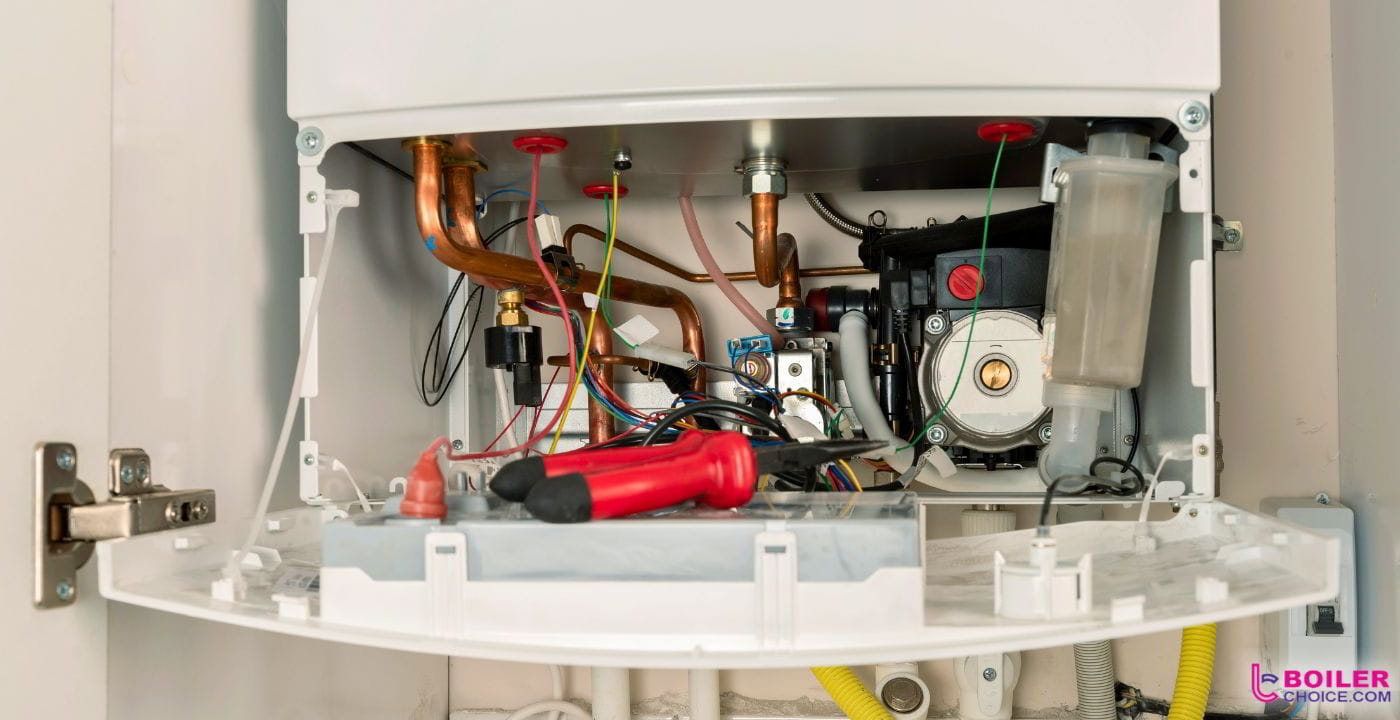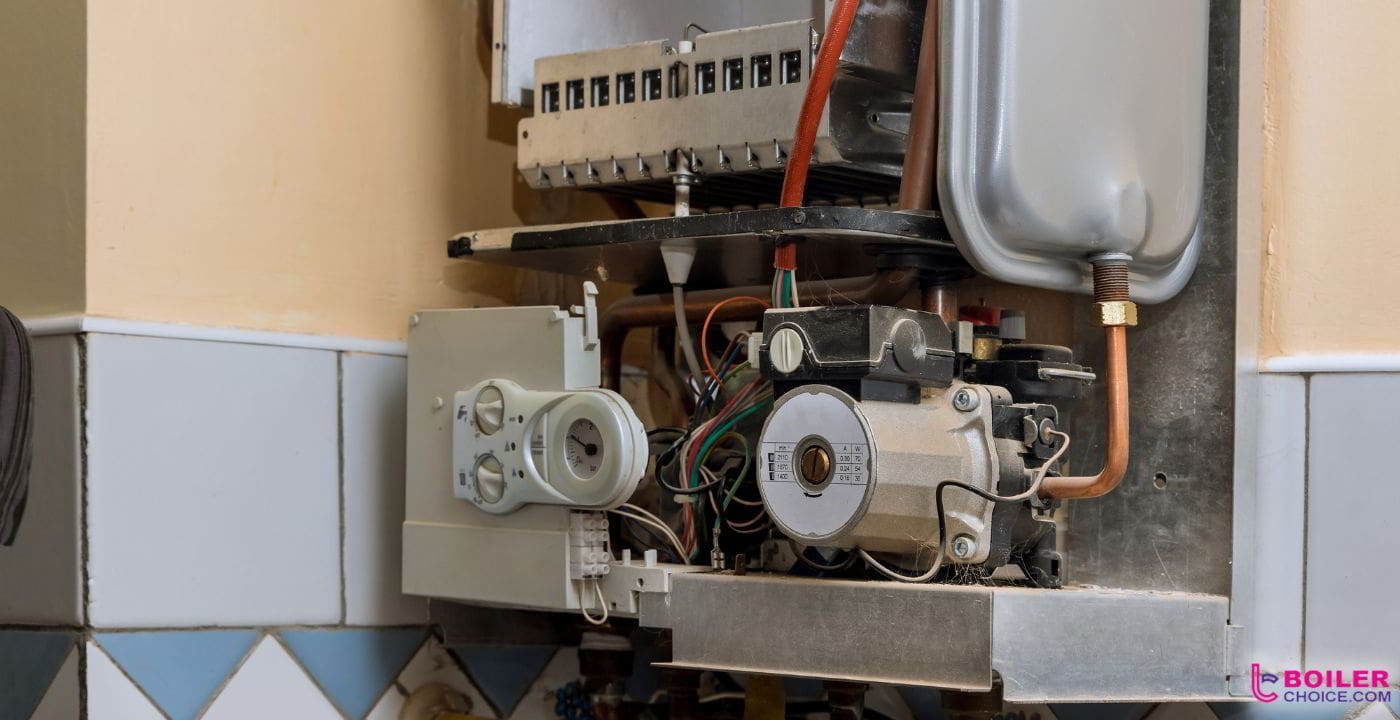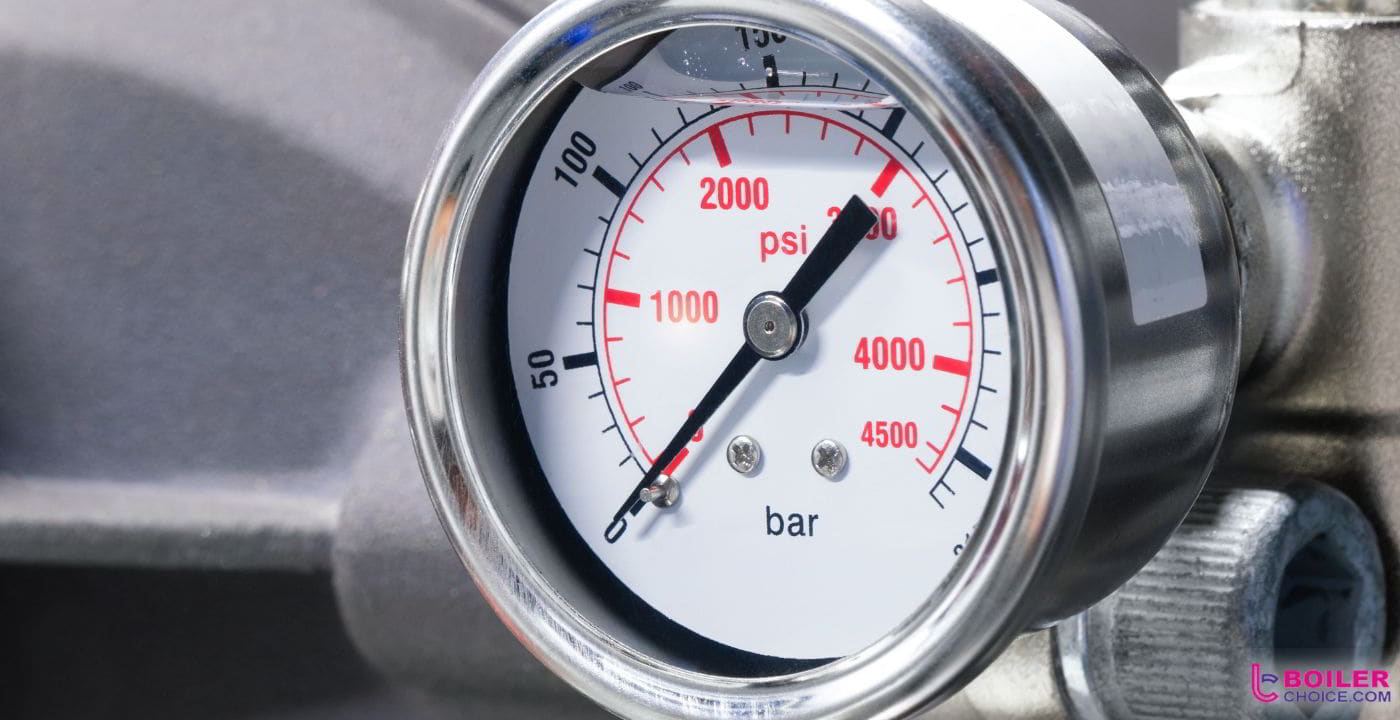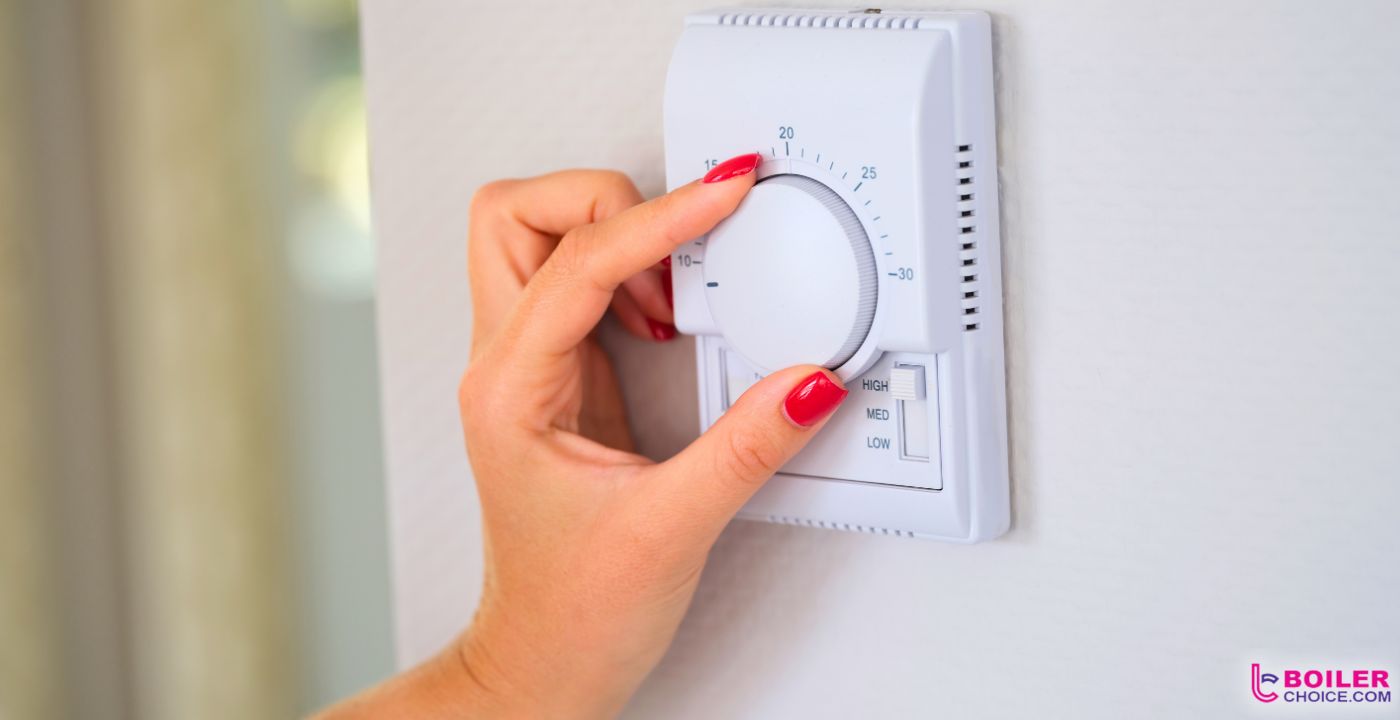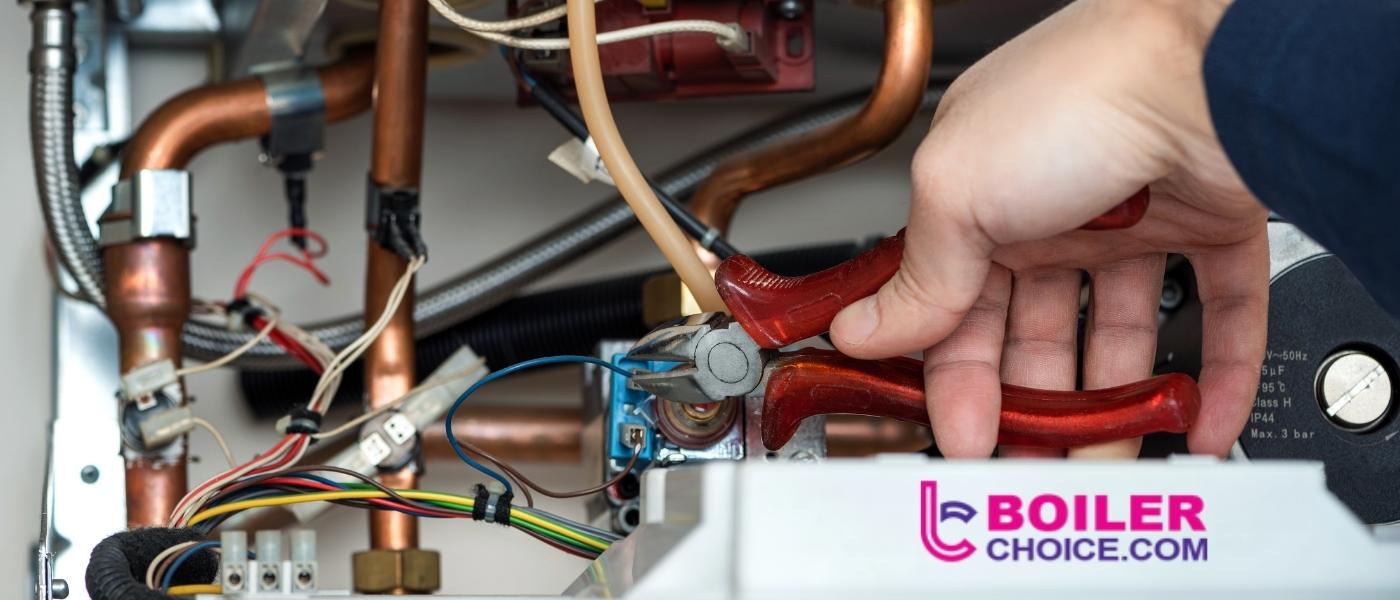
When it comes to boilers, there are plenty of options. Choosing the right boiler? Well, that’s the tricky part. Fortunately, we’re specialists here at Boiler Choice, and we can help you pick the perfect boiler. With that in mind, we’ve put together this guide on the various different types of boiler, as well as the boiler you might need.
What Are The Different Types Of Boiler Systems?
Nowadays, people are spoilt for choice when it comes to picking out a boiler. The variety in housing and energy demands means that, whereas once, a ‘one-size-fits-all’ approach might’ve done the trick, these days, that no longer sticks. But if that’s the case, then, how many types of boiler actually are there?
What Type Of Boiler Do I Need?
Here, we’ll take a look at each boiler type and briefly list the pros and cons of all three. We’re confident that, with this information, you can leave here knowing what new boiler installation you need!
Combi Boiler
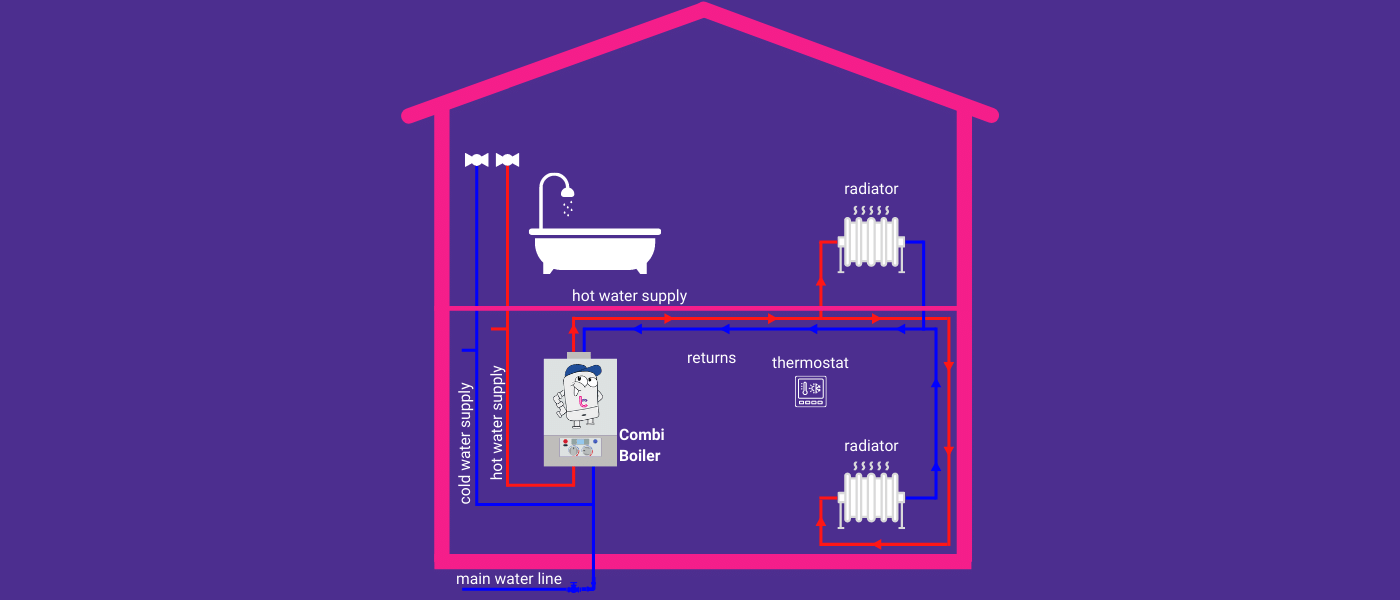
What is a Combi Boiler?
A combi boiler (short for ‘combination boiler’) is a single-unit system that heats water via an exchanger directly from the cold mains. This exchanger point, which is incredibly efficient, helps guarantee instantaneous hot water.
Combi boilers offer what might be thought of as a more ‘modern’ take on heating homes. When someone mentions a boiler, what we often first think of is a huge cylinder-shaped tank, usually tucked away behind a cupboard, or under the stairs. This is where a combi boiler is different, however. Combi boilers don’t require a hot-water tank, because a combi boiler works through a single unit that’s usually hung on the wall. That means you’re saving on a huge amount of space.
What Are the Advantages of a Combi Boiler?
- Take up far less space than traditional cylinder boilers.
- Hot water as soon as you turn on the tap.
- Reduced maintenance costs.
What Are the Disadvantages of a Combi Boiler?
- Unsuitable for households with low incoming water pressure or poor flow rates.
- Hot water levels will be affected when the boiler is required to source to multiple water outlets; this is only an issue if you have two or more showers within the home.
- Some combi boilers may be too big for pipework (contact us if you’re unsure about this).
Heat-Only Boiler
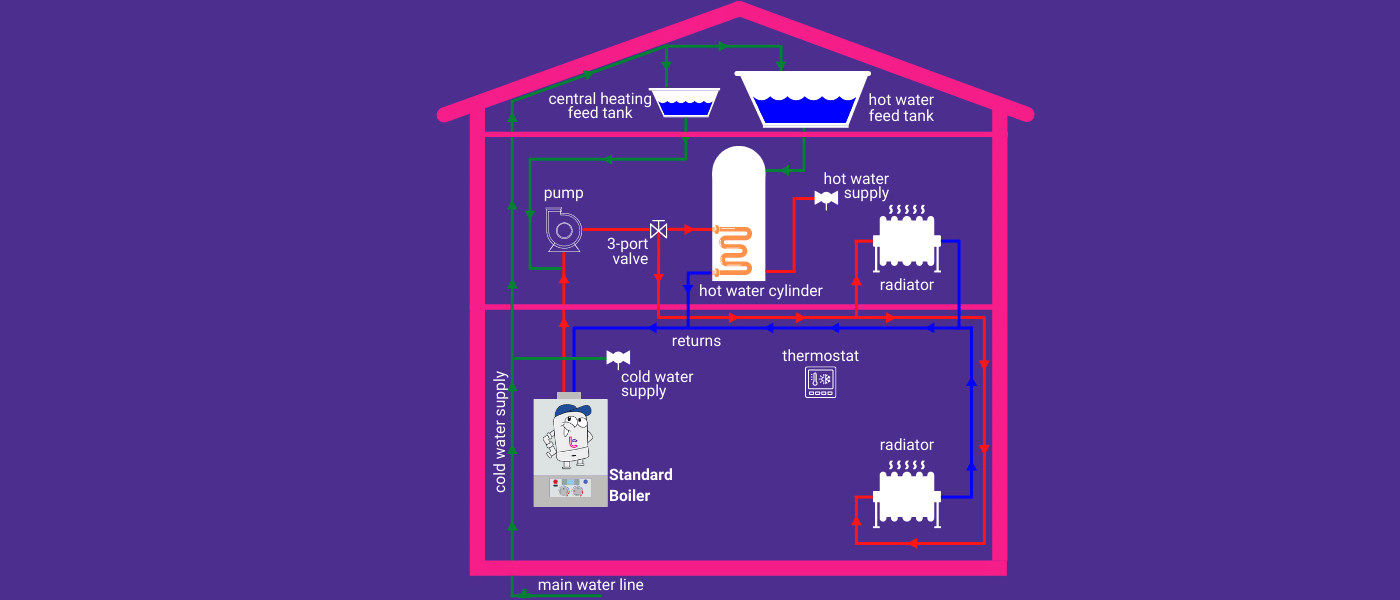
What is a Heat-Only Boiler?
Remember the classic cylinder-shaped boiler we mentioned only moments ago? Well, that’s a heat-only boiler. Whilst a slightly more old-fashioned type of boiler, these boilers are still just as effective for some properties.
A heat-only boiler (or a standard, regular, or conventional boiler) provides heating directly to your radiators from the cylinder. These typically work on an ‘open vented’ heating system; this is when there’s a feed and tank located in the loft space. Don’t worry, though, because they can also work on ‘sealed’ systems, too.
What Are the Advantages of a Heat-Only Boiler?
- They work very well with old radiator systems. These are used to dealing with high levels of water pressure, which a combi boiler may struggle with, by contrast.
- Low maintenance and replacement costs – these are the cheapest type of boiler to run.
What are the Disadvantages of a Heat-Only Boiler?
- Usually, only the boiler itself is covered by the guarantee or warranty. This means that should something go wrong with any one of a number of various other components (pumps, valves and tanks, for instance), then replacement costs could be very expensive.
- In terms of physical footprint, heat-only boilers take up a lot of space.
System Boiler
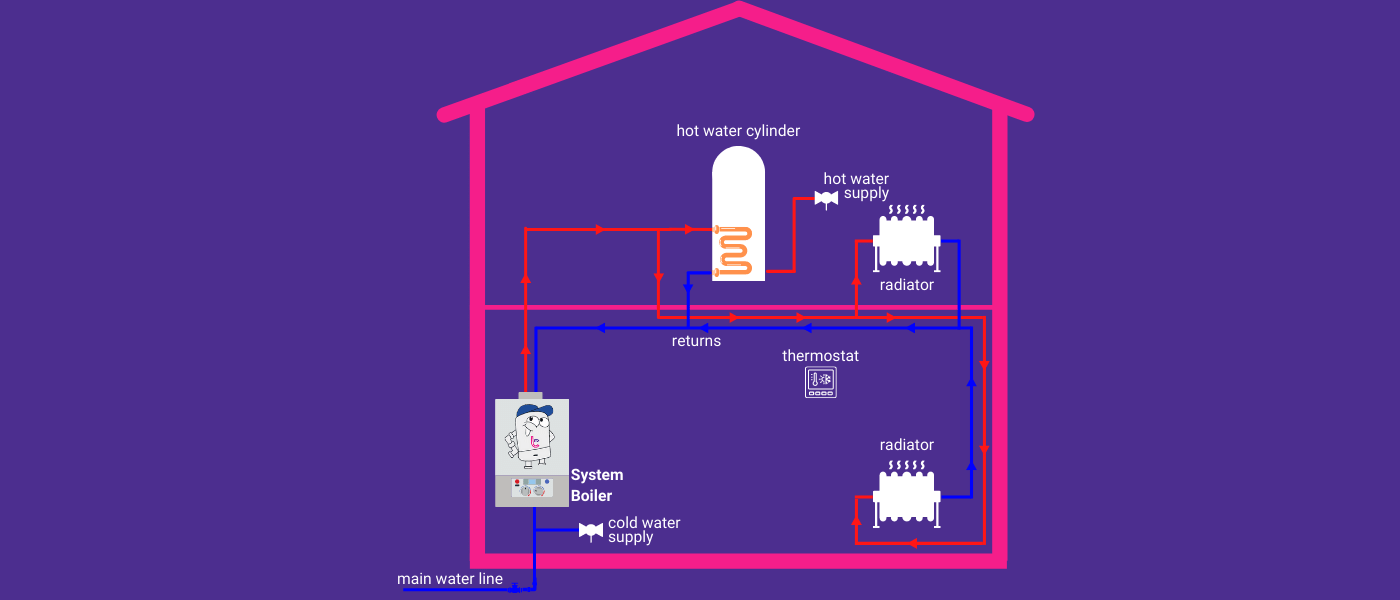
What is a System Boiler?
Put simply, a system boiler is the modern-day version of a traditional heat-only boiler. Like the regular boilers, they use a hot water cylinder tank, however the system isn’t open vented. What’s more, all separate parts (including valves, pumps etc.) are built into the boiler itself, making for a more compact, less obtrusive boiler.
What Are the Advantages of a System Boiler?
- These boilers are perfect for those homes with high hot-water demands.
- System boilers tend to come with attractive warranty/guarantees, and are typically very reliable.
What Are the Disadvantages of a System Boiler?
- A good hot water rate is contingent on the quality of incoming water pressure. If the latter is poor, then it’s likely that your hot water flow will be correspondingly inadequate.
- Although not quite as much as regular heat-only boilers, system boilers still require considerable amounts of space, particularly when compared with a combi boiler.
System Boiler Vs. Regular Boiler (Heat-Only)
System boilers are to regular, more traditional heat-only boilers what diamonds are to coal: an upgrade. Operating in very similar ways, it’s hard to argue against system boilers simply being an upgraded version of a regular heat-only boiler. Its internal parts, as well as the fact that no loft-based cistern tank is needed, make the system boiler the more preferable boiler type of the two.
Combi Boiler Vs. System Boiler
Whereas the previous head-to-head was pretty cut and dry, the debate between combi boilers and system boilers is a little more complex. Combi boilers take up less space and are incredibly efficient, whilst system boilers take up far more space (both the boiler unit itself and the need for a separate hot water tank) but can cater to higher hot water demands. Ultimately, which you choose will depend very much on what your individual needs are, as they can both be fantastic in the right setting.
Final Thoughts…
So, now you know the difference between the three main types of boiler. For homeowners, that first boiler purchase can be daunting – but it doesn’t have to be! That’s why, here at Boiler Choice, we’re always striving to make buying a boiler as easy as possible for customers.
We know just how many different types of boilers there are out there, and so we do our best to whittle down your options wherever we’re able! With just one quick and easy questionnaire, we make your decision far easier, offering you affordable, tried-and-trusted boilers. Get in touch with us via our contact info page, or take our questionnaire, here!

